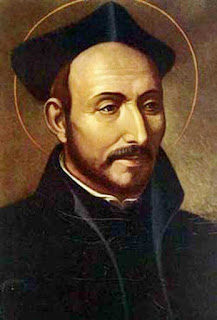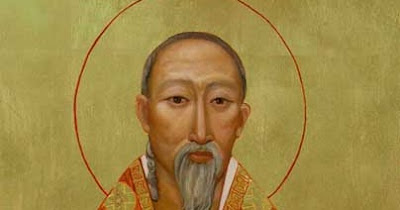Biblical scholars and preachers usually interpret today’s Gospel passage, the parable of the Good Samaritan in one of two ways. The first is to read it as Jesus’ answer to what Christian compassion, mercy, and neighborliness looks like. The scholar of the law asks Jesus, “who is my neighbor”, “who should I care about” and Jesus answers: your neighbor is everyone, even the person that you would normally overlook, even the person that the rest of the world considers unclean, that’s your neighbor, and you need to pick him up when he has fallen, you need to see past your preconceived notions and stereotypes and prejudices, and you need to treat him with mercy and compassion and tenderness. So that’s the first interpretation.

The second way of interpreting the Good Samaritan parable is to see in this parable an allegory for what God has done for each one of us in Christ Jesus. God has raised us up when we fell upon robbers and have been “half dead” because of sin. We’ve been raised up, tended, cared for, restored to life because of Jesus’ saving death. No human power could do what God has done for us—restoring our souls to life through baptism, healing us through grace.
Before I was ordained a priest, a group of seminarians one Sunday afternoon after attending Mass in the morning, decided to visit one of these non-denominational Mega-Churches that had become somewhat popular, you know, to see what all the fuss was about. In fact, a lot of former Catholics end up at these Mega-Churches for various reasons.
So that morning, there were about 800 people gathered, we sat in chairs up to a stage filled with drums and guitars. The service opened with about 20 minutes of Christian Rock music, smoke machines, and laser lights.
The pastor then took the stage and performed a dramatic retelling of this morning’s Gospel, the parable of the Good Samaritan.
Afterwards, he gave a sermon, basically interpreting the parable in that second way, that we are the man fallen amongst robbers; because of our own free-will given over to sin, we were lying on the road, half-dead, where no human power could help us. And then, out of His infinite love, God sent his son to die for us and redeem us, to raise us up to new life.
Then the pastor asked the congregation to close their eyes, and asked, “Have you fallen amongst robbers, have you been struggling in sin, are there choices that you’ve made against God’s commandments, have you pridefully rejected God’s grace, have you been selfish with the time you’ve been given? If so, raise your hand” And I’m thinking to myself, sure I have, I’ve struggled with sin, I’ve fallen, I’ve been prideful, I’ve been selfish towards my neighbor, and so, I raised my hand, I didn’t think twice. All of a sudden, he says, “Oh, I see someone with their hand up”. I open my eyes and look around and thought, “oh no, that’s me!” My classmates said I looked like a deer in headlights. So I quickly shoot my hand down, and try to hide in my seat. But I start to think, how am I the only one in this room of 800 people that is guilty of sin?
And I’m thinking, you know, this is one of the big differences between the Catholic faith and a lot of these non-denominational groups. They believe that you only have to raise your hand once in your life. Once you raise your hand, and go up to the altar, and profess that Jesus Christ is your personal Lord and Savior, your saved, you never need to raise your hand again. Catholics, on the other hand, we raise our hands daily. At every Mass or at the end of the day in our examination of conscience, we take sin seriously, we take our hands and we beat our breasts and see even those smallest acts of selfishness, for what they are, acts of free will contrary to the Love of God and Neighbor and we repent, daily.
And when those sins are of a serious nature, they cause a serious disruption in our relationship with God, we brings those sins to the ear of a priest, and to confess them and to be absolved from them in the Sacrament of Reconciliation.
Scripture and the lives of the Saints show that only when we acknowledge ourselves as sinners, do we truly begin to love God and neighbor. The second way of interpreting the parable, is a sort of key, to unlocking the first. The humble acknowledgement of my own need for a savior, my need for conversion opens us to truly love as we are made to love—to love God with our whole hearts, minds, souls, and strength.
I’ve been told that I sure talk a lot about sin and confession. But that’s only because humble repentance is the most important key to loving God and neighbor authentically. We see this so evidently in the lives of the Saints. The saints, who become charged and changed by God’s presence living within them, recognize and acknowledge themselves constantly falling short of the love of God, and so they strive to love more perfectly day after day. The Apostle St. Paul calls himself the “chief of sinners” after his initial conversion. He saw himself first and foremost as a sinner, who has unworthily received the new life of Grace. And he lived his life as a response to that grace.
St. Francis of Assisi, most beloved of saints, looked upon himself as a sinner, too. In fact, he believed himself the greatest of all sinners. Our most beloved of saints, thought himself the greatest of sinners. “He was accustomed to say that if the mercy shown him by God had been given to any other sinner, the latter would have become ten times holier than he, and that to God alone must be attributed whatever was found in him of goodness and beauty.
Saints are not the opposite of sinners. Rather, saints ARE sinners who acknowledge the truth about themselves and about God, and live in loving and grateful response to mercy through lives of grace and service. Saints allow themselves to be saved by Jesus the Good Samaritan, and go to become Good Samaritans for others.
Francis of Assisi once told his monks that if they were in the midst of the Beatific Vision and a beggar knocked at their door asking for a cup of cold water, turning away from the heavenly vision to help the beggar would be the real heaven, and turning away from the beggar to keep the blissful vision would be turning from God's face.
Daily we do well to ask the Holy Spirit to help us acknowledge and repent rightly of our sins, and to help us identify the times that we turned away from those opportunities to be the Good Samaritan. Daily repentance leads to daily conversion and daily acts of charity for the glory of God and salvation of souls.
















